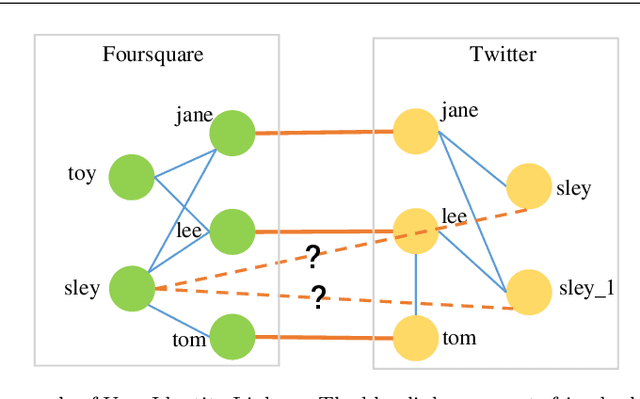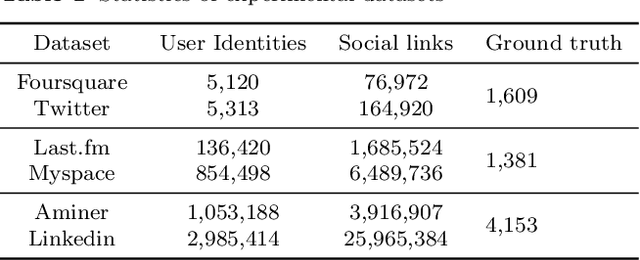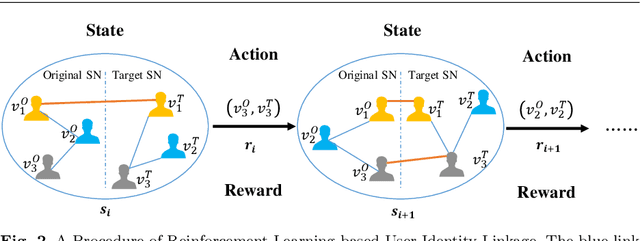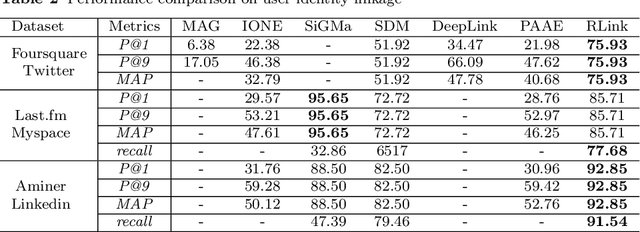Yanmin Shang
PathMind: A Retrieve-Prioritize-Reason Framework for Knowledge Graph Reasoning with Large Language Models
Nov 18, 2025



Abstract:Knowledge graph reasoning (KGR) is the task of inferring new knowledge by performing logical deductions on knowledge graphs. Recently, large language models (LLMs) have demonstrated remarkable performance in complex reasoning tasks. Despite promising success, current LLM-based KGR methods still face two critical limitations. First, existing methods often extract reasoning paths indiscriminately, without assessing their different importance, which may introduce irrelevant noise that misleads LLMs. Second, while many methods leverage LLMs to dynamically explore potential reasoning paths, they require high retrieval demands and frequent LLM calls. To address these limitations, we propose PathMind, a novel framework designed to enhance faithful and interpretable reasoning by selectively guiding LLMs with important reasoning paths. Specifically, PathMind follows a "Retrieve-Prioritize-Reason" paradigm. First, it retrieves a query subgraph from KG through the retrieval module. Next, it introduces a path prioritization mechanism that identifies important reasoning paths using a semantic-aware path priority function, which simultaneously considers the accumulative cost and the estimated future cost for reaching the target. Finally, PathMind generates accurate and logically consistent responses via a dual-phase training strategy, including task-specific instruction tuning and path-wise preference alignment. Extensive experiments on benchmark datasets demonstrate that PathMind consistently outperforms competitive baselines, particularly on complex reasoning tasks with fewer input tokens, by identifying essential reasoning paths.
RANA: Robust Active Learning for Noisy Network Alignment
Jul 30, 2025Abstract:Network alignment has attracted widespread attention in various fields. However, most existing works mainly focus on the problem of label sparsity, while overlooking the issue of noise in network alignment, which can substantially undermine model performance. Such noise mainly includes structural noise from noisy edges and labeling noise caused by human-induced and process-driven errors. To address these problems, we propose RANA, a Robust Active learning framework for noisy Network Alignment. RANA effectively tackles both structure noise and label noise while addressing the sparsity of anchor link annotations, which can improve the robustness of network alignment models. Specifically, RANA introduces the proposed Noise-aware Selection Module and the Label Denoising Module to address structural noise and labeling noise, respectively. In the first module, we design a noise-aware maximization objective to select node pairs, incorporating a cleanliness score to address structural noise. In the second module, we propose a novel multi-source fusion denoising strategy that leverages model and twin node pairs labeling to provide more accurate labels for node pairs. Empirical results on three real-world datasets demonstrate that RANA outperforms state-of-the-art active learning-based methods in alignment accuracy. Our code is available at https://github.com/YXNan0110/RANA.
Evidential Spectrum-Aware Contrastive Learning for OOD Detection in Dynamic Graphs
Jun 09, 2025



Abstract:Recently, Out-of-distribution (OOD) detection in dynamic graphs, which aims to identify whether incoming data deviates from the distribution of the in-distribution (ID) training set, has garnered considerable attention in security-sensitive fields. Current OOD detection paradigms primarily focus on static graphs and confront two critical challenges: i) high bias and high variance caused by single-point estimation, which makes the predictions sensitive to randomness in the data; ii) score homogenization resulting from the lack of OOD training data, where the model only learns ID-specific patterns, resulting in overall low OOD scores and a narrow score gap between ID and OOD data. To tackle these issues, we first investigate OOD detection in dynamic graphs through the lens of Evidential Deep Learning (EDL). Specifically, we propose EviSEC, an innovative and effective OOD detector via Evidential Spectrum-awarE Contrastive Learning. We design an evidential neural network to redefine the output as the posterior Dirichlet distribution, explaining the randomness of inputs through the uncertainty of distribution, which is overlooked by single-point estimation. Moreover, spectrum-aware augmentation module generates OOD approximations to identify patterns with high OOD scores, thereby widening the score gap between ID and OOD data and mitigating score homogenization. Extensive experiments on real-world datasets demonstrate that EviSAC effectively detects OOD samples in dynamic graphs.
RLINK: Deep Reinforcement Learning for User Identity Linkage
Oct 31, 2019



Abstract:User identity linkage is a task of recognizing the identities of the same user across different social networks (SN). Previous works tackle this problem via estimating the pairwise similarity between identities from different SN, predicting the label of identity pairs or selecting the most relevant identity pair based on the similarity scores. However, most of these methods ignore the results of previously matched identities, which could contribute to the linkage in following matching steps. To address this problem, we convert user identity linkage into a sequence decision problem and propose a reinforcement learning model to optimize the linkage strategy from the global perspective. Our method makes full use of both the social network structure and the history matched identities, and explores the long-term influence of current matching on subsequent decisions. We conduct experiments on different types of datasets, the results show that our method achieves better performance than other state-of-the-art methods.
 Add to Chrome
Add to Chrome Add to Firefox
Add to Firefox Add to Edge
Add to Edge